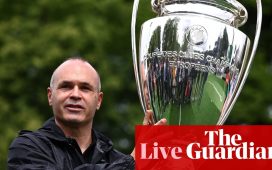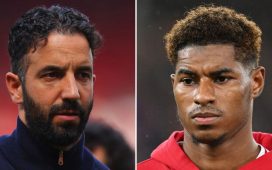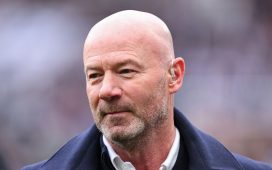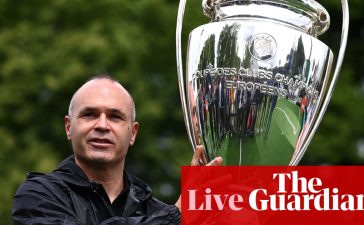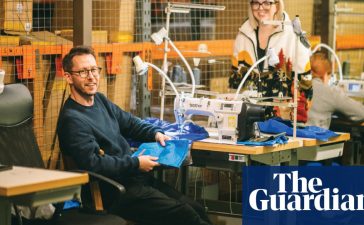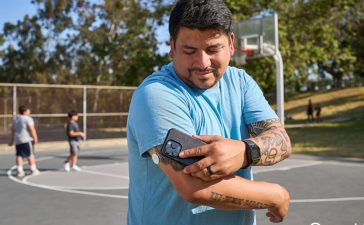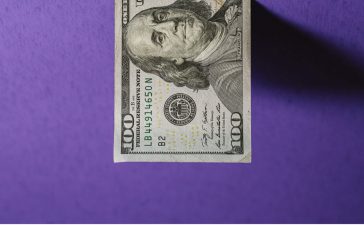Put a bisht on it. That’s a wrap. At first glance it might be tempting to see the 2025 Champions League final as one of the more obviously high-European occasions in recent football history.
Twenty thousand Parisians and Milanese will trace out a thousand mile right-angle this weekend, north from Lombardy, east across Alsace and the Rhineland, there to spend a long weekend wandering the white stone streets of Munich, with its reassuringly terrifying gothic cathedral, its pounded-meat cuisine de terroir, its altstadt boutiques selling wristwatches priced at roughly the same the cost as the average human arm, and finally on to the lighted dome of the Allianz Arena, dumped down in the green fringes to the north like a giant alien doughnut.
For the first time in five years there isn’t a single English person involved as Paris Saint-Germain and Inter meet in the capital of Bavaria. Premier League, Club World Cup. Look upon our Euro splendour and tremble. This is heartlands stuff, a moment of pure Schengen-ball.
Except, of course, it is something else entirely too, an opportunity to complete a brilliantly enacted subversion of that old order from within.
PSG have been the best team in Europe this year. In Munich they will kick off as favourites to take the trophy to France for the first time since 1993. But victory would also represent something much more significant, the moment Qatar basically completes football – and in a way that feels far less brittle, far more permanently entrenched than might have seemed possible a few years ago.
Every drama needs a ticking clock. This one came bonging into existence in November 2010 with the staging of the most iconic lunch in modern football history. Summoned to the French president’s Élysée Palace by Nicolas Sarkozy (the pre ankle-tag version), Uefa’s Michel Platini found a surprise guest at the table. This was Tamim al-Thani, crown prince of Qatar and a footballing nobody at this point, but the same Thani who would, as the emir, hand the World Cup to Lionel Messi in Qatar 12 years later.
It is important to state that Platini denies this interaction had any bearing on his vote, 11 days later, for the 2022 World Cup hosts. Sarkozy has also denied influencing or even appearing to influence the Uefa president’s choice.
Qatar did gain the decisive Platini backing all the same. Coincidentally, Qatar’s state broadcaster almost immediately bought up the unsold TV rights to Ligue 1. In another unrelated act, six months later Qatar Sports Investments bought PSG, who were at that time in financial difficulties. A year later France sold 50 Airbus planes to Qatar Airways, a key step in a process that has led, 15 years on, to Qatar standing elbows-deep in French infrastructure funding.
Fast forward to Saturday and the emir may well be present again as the jewel in his sporting outreach arm completes a key stage towards overhauling Real Madrid as the most commercially successful club in the world. Make no mistake, this will be a coronation even in defeat. We all wear the bisht now.
It is worth being clear on how that final phase has played out, a wonderful example of football’s instant amnesia. Until six months ago PSG were still struggling to free themselves from the idea that this was some kind of debauched celebrity waxwork museum, defined by a mental image of Neymar breakdancing on crutches at his own gala birthday party dressed only in a chinchilla fur thong and solid gold bowler hat, before driving off into the night in a special car made entirely from cheese.
Fast forward through one tactical rejig and a key jettisoning of stars and the talk in France is of how this team has “seduced the French people” with its youth and verve, transformed now into a kind of kitten collective, not just the good guys, but the best guys. This is the new PSG. Soulfulness, graft, sweat, doing woodwork in a shed. It turns out humility might actually be a good way to win after all. So we will buy the greatest humility available to mankind. Kneel before our self-effacing collectivism.
There was always a gulf between the keep-ball style of successive PSG coaches and the desire to stack the squad with strolling superstars. So the new sense of grit is present in the tactical patterns too, a team that take to the pitch wound up into a kind of tackle fever, whose superpower is not being more famous than you, but counterpress and rapid team transitions. It is a brilliantly drilled, brilliantly obedient group, like watching a kind of cubism-ball in action, a world of rigorous geometric patterns, nature morte, all squares, angles, order, clean lines.
The basic material here is young, high quality and ego-free. So instead of Neymar we have the anti-Neymar Désiré Doué, acme of the orderly modern prodigy, a football obsessive who takes timed daytime naps to improve his energies. The midfield is defined by Vitinha, who loves the ball and nothing else, who looks as though the only time he would cancel training is when he wants to do even more training, triple training (he will also do your training first, and at twice the speed).
But it would also be entirely wrong at this point to imagine the current success springs from the rejection of the superstar era. In fact the opposite is true. One hand washes the other. All parts are connected. For all the occasional moments of on-field farce, it was the Neymar-Messi-Mbappé era that gave PSG the current fully realised team.
All clubs like to talk about the Brand. Paris really, really like doing this, the current boilerplate boasts running to “a cultural icon … at the intersection of sport, fashion, and entertainment … a globally recognized lifestyle brand … The Club of the New Generation … shaping the future of sport and society.”
The most astonishing part of this encomium is that it’s actually true. The Hollywood stuff, the bolt-on fame, the army of likes and follows: this wasn’t simply naivety or cash thrown into an empty pit. Qatar worked out early on that money buys you success, but it can also buy you the stuff everyone else’s success is based on.
after newsletter promotion
It has taken 15 years of overspend and playing the celebrity game, but this is now a hard commercial success, and a hyper-successful piece of celebrity piggybacking. Bought for €70m (£59m) in 2011, PSG is valued between €3.5bn and €4.2bn. The real killer is commercial revenues, once a third of Manchester United’s annual haul but now leaving them in the dust for the foreseeable future.
There have been three phases. The first was the frontier age of blunt state sponsor-led investment. Reeling in Zlatan. Changing the logo (previously: club badge) to Paris, firing up the chain of loss-leading global boutiques. The Nike Jordan deal in 2018 was an act of marketing prescience, positioning PSG as NBA-adjacent, fashion runway-curious.
Phase two was 2017-2021 and the basking superstars team: no good at enforcing a high press, but hugely successful in ramping up the cashflow. Commercial deals have flooded in, high-end stuff rather than noodle partners by numbers. Matchday revenues are unexpectedly big, fruits of a one-big-club city that loves glitz and spectacle. That star project worked. The club are closer than ever to becoming an independent mega-brand. Messi may have hated being in Paris. But he gave a lot more than he might have realised.
It obviously helps that none of this was ever really a gamble. For a club with bottomless owners of last resort there are no hard consequences to shedding a slew of duff star players. Manchester United may have spent years unable to pay off a bloated and sullen squad, but this is a lesson in the power of a truly nation-state owner. Slash and burn. Swallow the losses. You don’t have to be backed by one of the world’s largest gas producers to build a champion team without fear of the end cost. But it does help.
As will the £300m spent on what is, again without bluster, “the best training centre in the world”, Campus PSG at Poissy, with its pristine acreages, its market garden, its chauffeurs’ ping-pong room, its hypoxic oxygen chamber, luxury living quarters and hairdressing salon, the panic room in case of terrorist attack.
It helps also that the real genius of Qatar has been building power rather than simply working in its shadow. This month the club president, Nasser al-Khelaifi, was seen meeting Jeff Bezos at the Cannes film festival to work out a possible collaboration, the kind of thing that seems logical now for a man who is also president of BeIn Sports, a minister in the Qatari government, head of the European Club Association (ECA), a Uefa executive committee member and even an unexpected face at the recent Gaza peace talks at the Élysée Palace (not the kind of thing Ken Bates, for example, was ever likely to get an invite to).
Some people are said to have a finger or two in the pie. Khelaifi has both fists jammed in there so deep it’s hard to know where the pie starts and finishes. He is the pie.
It has been a nontypical rise for the son of a pearl fisherman, born outside power, but expert in the macro-hustle. Al-Khelaifiused the Super League chaos brilliantly, standing with Aleksander Ceferin just when European football needed someone with no fear of consequences. This led to his current role at the ECA, which has become the real power behind the power, and a key driver of the new Champions League. Yeah, don’t do the super league. Do this instead with me in charge.
It is worth remembering as PSG present themselves in Munich as a vision of hopeful young talents beaming in sport-couture kit, that this is still nation-state power finding a way. It is also an entity that doesn’t need to say please any more.
One notable absence from the club’s invited guests in Munich is the Paris mayor, Anne Hidalgo, whose tenure has been bruised by the refusal to sell the publicly owned Parc des Princes to QSI. It feels like a fitting bookend to that formative lunch at the palace. We don’t actually need to sit with you now. We are the entire buffet these days. Win or lose on Saturday, that table is set.

